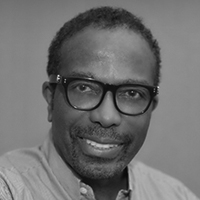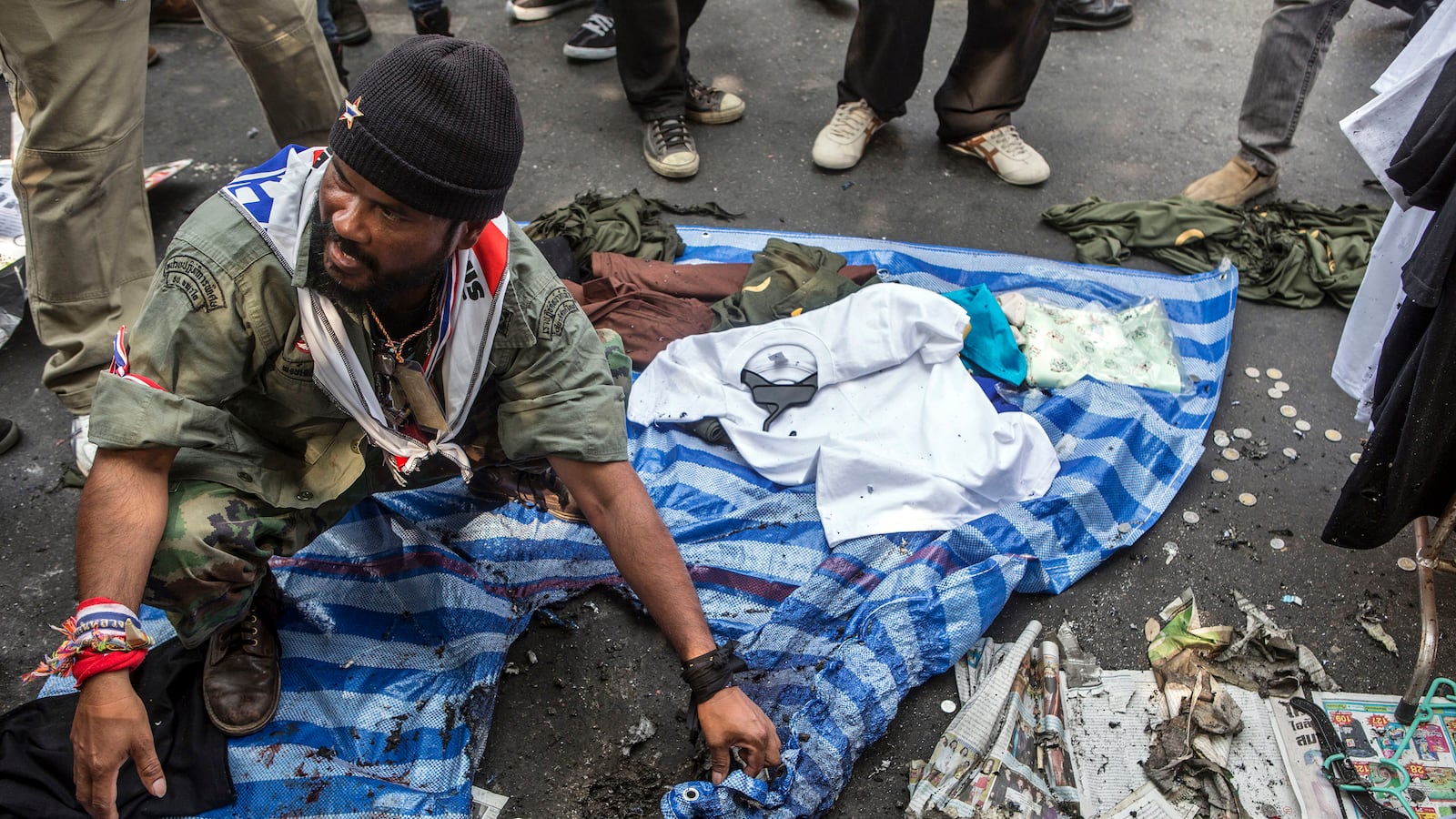Just a few days ago, Thailand’s top military general, Prayuth Chan-Ocha, warned that extremist protesters seeking the ouster of the government might ratchet up the violence that thus far had claimed eight deaths and more than 450 injuries. The Army chief’s admonition proved to be prescient: About 30 people were injured Sunday when attackers lobbed two grenades into a crowd rallying near Victory Monument, one of Bangkok’s most popular protest sites.
But the general may have been wrong about one thing. Assuming anti-government demonstrators are not attacking each other, the latest bombing appears to be the work of people who oppose the protests—and presumably support the caretaker government of Prime Minister Yingluck Shinawatra. Indeed, Bangkok’s The Nation quotes Thaworn Senneam, an ally of protest leader Suthep Thaugsuban, saying the attack was aimed at him. The newspaper reports that Thaworn claimed guards from his People’s Democratic Reform Committee said six outsiders may have been involved in the grenade attack.
No one has died in the latest violence, although a half dozen of those hurt sustained serious injuries. A middle-aged man was severely injured in a previous grenade attack on Friday around Banthat Thong Road, and subsequently died. The number of injured is now approaching 500 overall.
The escalating violence suggests two developments, both likely to sow deep unease around the capital and the nation, and increase the prospect of a bloody resolution of the political stalemate that has gripped the country for weeks. First, it appears “Red Shirt” elements who back the government and who previously had ceded the spotlight to anti-Yingluck protesters (aka “Yellow Shirts”), are running out of patience and have decided to join the fray—violently. Second, such extremists apparently have decided to mingle with protesters en route to launching their attacks.
And it appears the perpetrators are not carrying only grenades. Witnesses said they chased a suspect and he fired shots, into the air and at pursuers, to throw them off. If true, that indicates there’s little compunction about indiscriminate violence, meaning more people could easily get hurt in such altercations.
When Suthep launched the People’s Democratic Reform Committee protests two months ago, some Red Shirt cadres initially took to Bangkok’s streets as well, resulting in a few skirmishes, mostly involving university students. But Red Shirt leaders urged supporters of Yingluck and her brother, deposed former Prime Minister Thaksin Shinawatra, to cease and desist, and the feared invasion of Bangkok by Shinawatra backers from the country’s North and Northeast never materialized. But as the PDRC has ramped up its tactics—taking over government ministries, cutting off power, and most recently, shutting down several sections of Bangkok—a growing number of citizens have been having misgivings. Many, notably in the business community, have urged restraint on the protesters. It would be unfortunate, but not be a great surprise, if Thaksin devotees decided to take the fight directly to protest leaders.
The current violence is the latest in a series of bloody outbursts that have played out over the centuries-long deep divide among Thais. It is a schism that has pitted friends and relatives against each other, as they line up for and against the éminence grise, or dark lord, of Thailand politics, Thaksin Shinawatra, who is now ensconced in splendid exile in Dubai—where, critics say, he is running the Thai government by proxy. The bitter disagreement is being played out right now on Facebook, where dozens of people—foreigners included—have been reacting strongly to a remarkable column by Bangkok Post columnist Voranai Vanijaka . The columnist triggered considerable rebuke by having the temerity to make, in an even-handed piece, observations such as, “To deny the Pheu Thai government its democratic right to govern is a slap in the face for the more than 15 million people who voted for it, and those upcountry people feel they have been slapped around for far too long.”
Residents of areas such as Isan and cities like Udon Thani have told me that Thaksin is the only premier who ever paid them any attention, apart from looking at them as the people who provide servants and masseurs to the Bangkok elites. Meanwhile, a significant number of residents in Bangkok and the south—including ordinary Thais—condemn Thaksin as a power-mad demagogue who has hoodwinked “uneducated” folks up north. One commentator told me Thaksin “is like Marcos or like Hitler. They win and become abusive of power and twist people’s mandate to their own purposes.”
With such disparate sentiments, and with two sides (and various subgroups) harboring such deeply felt grievances, a peaceful, nevermind amicable, resolution remains elusive.
Will the rising violence hasten a PDRC-government rapprochement? Probably not. The first grenade attack on Friday prompted Suthep to urge more blockades by his supporters. It’s unlikely more bombings will soften his stance. The nation can only hope the anti-government extremists General Prayuth warned about don’t decide to engage in tat-for-tat violence. That could make for very dangerous Bangkok streets—and perhaps a coup by a military that sees no other options. In the meantime, expect attitudes to harden—and the country to remain at impasse.






